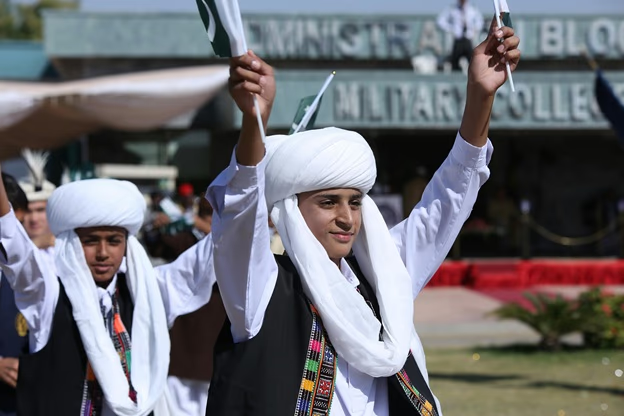For decades, the people of Balochistan have sought separation from Pakistan. Recently, this movement has gained momentum. Sporadic conflicts have grown more violent. At times, Baloch fighters attack Chinese officials working in mines, while instances of citizen kidnappings occur. Despite Pakistan's attempts to suppress these movements, it raises questions about the nation's fears relating to this rebellious region.
How Large Is Balochistan?
Balochistan is Pakistan's largest province, covering about 44 percent of its total land area. However, this vast region has a sparse population, housing only around 12 to 13 million people, which is about 6 percent of the nation's total population.
This province, which borders Iran and Afghanistan, is intriguingly situated next to the rebellious Sindh and Punjab provinces.
What Causes the Unrest?
This expansive region holds immense natural wealth, with massive reserves of gas, coal, and gold that Islamabad claims ownership over. While that might seem reasonable, the very Baloch people on whose land these resources lie are kept distant from them. The mines here are leased to Chinese companies by the Pakistani government, who exploit these resources amongst themselves.
Politically, Balochistan locals lack significant representation. Despite its abundant resources, the region suffers neglect akin to that of Pakistan-Occupied Kashmir (PoK). The people's language and customs align more with Iran than Pakistan, which fuels the growing insurgency.

Source: aajtak
The subdued dissent for independence began rising after Bangladesh achieved its freedom. The Baloch Liberation Army amplified this cause, launching strategic attacks when peaceful demands went unmet. Quetta, the capital, remains a stronghold for these separatists, from where attacks are orchestrated.
Potential Geographic Losses
Should Balochistan secede, Pakistan would face a significant territorial and strategic loss. Balochistan is the largest province, covering nearly half of the nation's geographic area. Thus, the secession would shrink Pakistan almost by half.
Balochistan provides Pakistan its vital access to the Arabian Sea through the Gwadar port, a linchpin of the China-Pakistan Economic Corridor, facilitating direct trade. If lost, Islamabad's maritime reach and strategic influence would diminish. Furthermore, the borders adjoining Iran and Afghanistan would weaken Pakistan's western defense line, compromising its international standing.
A Major Military Blow
This region serves as Pakistan's western defense line. The extended borders with Afghanistan and Iran rely on Balochistan's defense. If divided, Pakistan would face a neighboring adversary on its borders, escalating defense costs and necessitating constant military vigilance.

Source: aajtak
The Gwadar port, alongside proximate military bases, were developed with Chinese assistance. This area holds immense naval strategic importance. If lost, Pakistan's navy would weaken in the Arabian Sea. China, too, would suffer a blow as Balochistan is its corridor to the Arabian Sea, impacting Pakistan's defense and intelligence capacities.
Economically Vulnerable Pakistan
Economically, Balochistan is a substantial income source for Pakistan. The region's mountains hold large deposits of natural gas, coal, gold, copper, and oil. Approximately 40 percent of Pakistan's gas demand is fulfilled here. Should Balochistan secede, Pakistan might lose control over these resources. Moreover, the international trade facilitated through Gwadar would cease, stalling the multi-billion-dollar corridor project with China.
Is Balochistan's Break From Pakistan Greater Than Bangladesh's?
In the early 70s, when Bangladesh separated, Pakistan lost half its population. The major blow was economic, as Eastern Pakistan's jute and agriculture underpinned the entire nation's economy. Unlike then, Pakistan's geographic and strategic core—Punjab and Sindh—remained intact, preventing total collapse.
If Balochistan secedes, the impact would be huge as it is Pakistan's largest and most strategically crucial region, covering 44 percent of the land despite its sparse population. The loss of Gwadar would not only end Pakistan's access to the Arabian Sea but also weaken ties with Beijing, crucial for both nations.




